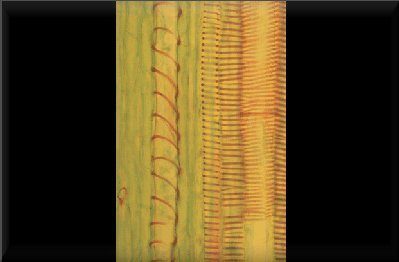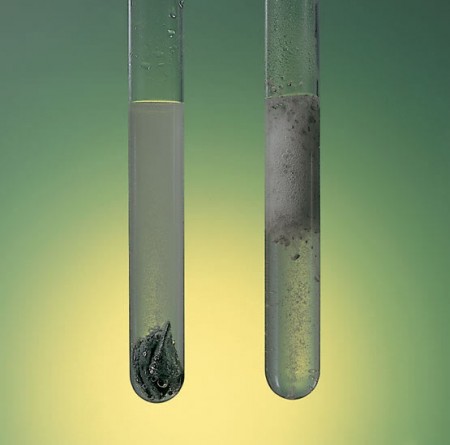 It is called xylem to the set of the woody vessels of plants through which the raw sap passes. That is, the xylem is a conductive tissue that deals especially with the transport of raw materials absorbed by the root of a plant, to the producing organs that are the leaves. As a consequence, the transport turns out to be upward, rising from the root to the leaves.
It is called xylem to the set of the woody vessels of plants through which the raw sap passes. That is, the xylem is a conductive tissue that deals especially with the transport of raw materials absorbed by the root of a plant, to the producing organs that are the leaves. As a consequence, the transport turns out to be upward, rising from the root to the leaves.
The energy to carry out the aforementioned transport is produced by two physical phenomena: osmosis (it displaces the water accumulated in the root upwards thanks to the difference that exists between the soluble potential corresponding to the root tissue and the soil moisture) and suction (It attracts the water contained in the vascular tissue to the leaves with the mission of compensating for the loss of water due to the perspiration of the leaves).
Although, the aforementioned is not the only task that the xylem takes care of, since it also participates in the conduction of minerals, in the reserve of nutrients and in the support.
Regarding its conformation, it is a complex tissue formed by several types of cells, such as: conductive elements (they take care of transportation), xylem vessels and tracheids. The mentioned cells come from a lateral meristem.
For their part, xylem vessels they are composed of cells arranged in columns and that reabsorb the common walls. During maturity they remain dead, so the cellular content disappears in such a way that the xylem vessel will constitute a hollow tube. This type of cells will present a secondary wall in cases where the vessels are in mature organs, in the rest, the secondary wall will appear incomplete.
On the other hand, tracheids, are conductive cells that appear in angiosperms and gymnosperms. Its shape is elongated with a spindle-shaped tip and a secondary wall. Its diameter is smaller than that of the xylem vessel and the fibers will not reabsorb their common walls, instead, they will communicate through pits. For this reason, its transport capacity will be less than that of xylem vessels.









